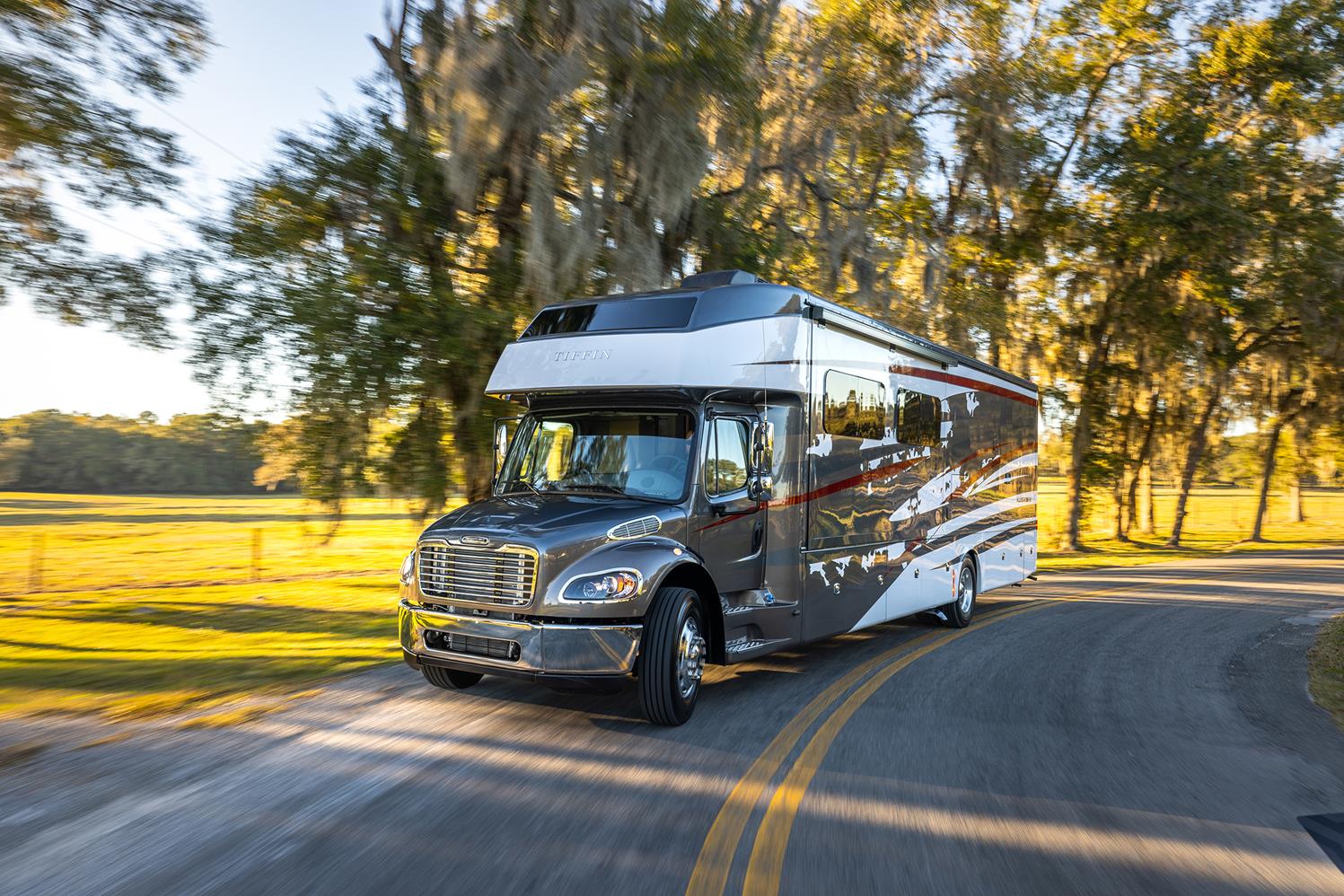
Complete Guide on Full-Time RV Living
Table of contents
- The Benefits of RV Living
- The Challenges of Full-time RV Living
- Budgeting and Financial Considerations
- Downsizing and Simplifying Your Life
- Staying Connected on the Road
- Staying Safe on the Road
- Finding Campsites and Accommodations
- Life on the Road: Tips and Tricks
- Want to Keep Your RV Cozy and Efficient Year-Round?
Are you considering a life on the road, exploring new horizons, and embracing the freedom of full-time RV living? Living in an RV full-time offers a unique lifestyle filled with adventure, flexibility, and the chance to call the open road your home. Whether you’re a seasoned RVer or a newbie to the concept of living in an RV full-time, this comprehensive guide will walk you through the ins and outs of this nomadic way of life.
The Benefits of RV Living
Before we delve into the nitty-gritty details, let’s explore the exciting and enticing aspects of living in an RV full-time. Here are some of the best parts of this lifestyle:
1. Freedom and Flexibility: Full-time RV living allows you to wake up to a different view every day. You can follow good weather, explore new places, and change your scenery at will.
2. Cost-Effective: RV living can be more affordable than traditional homeownership. You save on rent or mortgage, property taxes, and utility bills.
3. Minimalism: Living in an RV encourages downsizing and simplifying your life. You’ll learn to appreciate the essentials and shed the excess baggage.
4. Closer to Nature: Enjoy the beauty of natural surroundings right at your doorstep. Many RVers love the proximity to national parks, beaches, and forests.
5. Community: The RV community is tight-knit and supportive. You’ll meet fellow RVers who share your passion for adventure.
The Challenges of Full-time RV Living

While the RV lifestyle offers numerous benefits, it’s essential to acknowledge the challenges too. Here are some of the cons and challenges you may encounter:
1. Limited Space: RVs are compact, and storage space can be limited. Downsizing your possessions and staying organized is a must.
2. Maintenance: RVs require regular maintenance, which can be time-consuming and costly.
3. Changing Scenery: As much as it’s a perk, constantly changing locations can be disorienting and might affect your sense of belonging.
4. Connectivity: Staying connected on the road, whether for work, school, or leisure, can sometimes be a challenge.
5. Unpredictable Expenses: Unexpected repairs and maintenance costs can arise when you least expect them.
Budgeting and Financial Considerations
Living in an RV full-time can be financially sustainable if you plan carefully. Here are key budgeting and financial considerations:
Initial Costs & Ongoing Expenses
Initial Costs:
- RV Purchase: Whether you choose a motorhome, travel trailer, or fifth-wheel, your initial investment can vary significantly.
- Licensing and Insurance: Registering your RV and securing adequate insurance coverage are essential steps.
- Outfitting: You’ll need essentials like kitchen equipment, bedding, and other living necessities.
Ongoing Expenses:
- Campground Fees: These vary depending on location and amenities. Some RVers opt for membership programs to reduce costs.
- Fuel: A significant part of your budget goes towards fuel for your RV.
- Maintenance: Regular maintenance and unexpected repairs can be a substantial expense.
- Utilities: Propane, electricity, and water costs should be considered.
- Food: Your food expenses can be similar to or lower than when living in a traditional home, depending on your eating habits.
- Insurance: Budget for recurring insurance premiums.
Income Options While on the Road
To sustain full-time RV living, consider the following income options:
1. Remote Work: If your job allows for remote work, this is an excellent option. Many RVers work remotely in various fields such as IT, writing, consulting, and more.
2. Seasonal Work: Some RVers take on temporary jobs in the locations they visit. Opportunities include campsite hosting, working at national parks, or seasonal agricultural work.
3. Online Business: Starting an online business, blog, or YouTube channel can generate income and allow you to maintain a flexible schedule.
4. Retirement Income: Many full-time RVers are retirees who live off their pension or savings.
5. Passive Income: Investments, rental properties, or royalties can provide a source of passive income.
Downsizing and Simplifying Your Life

A significant challenge in full-time RV living is downsizing and simplifying your life. Here are some tips and storage solutions:
- Declutter: Before hitting the road, go through your possessions and keep only what’s essential. Donate, sell, or store items that won’t fit in your RV.
- Maximize Vertical Space: Use shelves and hooks to make the most of your vertical space for storage.
- Under-Bed Storage: Many RVs have storage compartments beneath the bed. Use this space for clothing, bedding, or other items.
- Foldable Furniture: Invest in furniture that can be folded away when not in use, such as folding chairs or tables.
- Multi-Functional Furniture: Furniture pieces that serve multiple purposes, like a sofa bed with storage, can save space.
- Vacuum Storage Bags: These bags can compress clothing and bedding, making them easier to store.
Staying Connected on the Road
In the digital age, staying connected on the road is crucial for remote work, communication, and leisure. Here are some mobile internet solutions:
- Mobile Hotspots: These portable devices provide internet access through cellular networks and can be used to create a Wi-Fi network in your RV.
- Cell Signal Boosters: Signal boosters can enhance your cellular reception, especially in remote areas.
- Satellite Internet: Some RVers opt for satellite internet solutions, which offer reliable connectivity in remote locations.
- Wi-Fi Extenders: Wi-Fi extenders can improve connectivity when you’re near a campsite or public Wi-Fi sources.
Staying Safe on the Road
Safety is paramount when living in an RV full-time. Here are some essential safety considerations:
Vehicle Maintenance and Inspections
Regular maintenance is critical to ensure your RV remains in good working order. Consider these basic maintenance tasks:
- Engine Maintenance: Regularly check and service your RV’s engine, including oil changes, brake inspections, and tire rotations.
- RV Systems: Ensure your RV’s systems, like plumbing, electrical, and HVAC, are well-maintained and in working condition.
- Tire Inspections: Regularly inspect your tires for wear and tear, and maintain proper tire pressure.
- Safety Checks: Test your smoke detectors, carbon monoxide detectors, and fire extinguishers.
Personal Safety and Security While Traveling
- Lock Your RV: Always lock your doors and windows when you’re away from your RV. Consider adding additional security measures like motion-activated lights or security cameras.
- Campsite Selection: Choose well-lit and secure campgrounds or RV parks. Read reviews and ask for recommendations from fellow RVers.
- Emergency Preparedness: Be prepared for emergencies with first-aid kits, emergency contact information, and a plan for various situations.
- Travel Companions: If you’re traveling alone, let someone know your travel plans and check in regularly.
Finding Campsites and Accommodations
Discovering places to park your RV is a significant part of full-time RV living. Here are some ways to find campgrounds, RV parks, and membership programs:
- Online Resources: Websites and apps like Campendium, RV Parky, and AllStays provide a wealth of information about campgrounds and RV-friendly locations.
- RV Memberships: Consider joining RV membership programs like Thousand Trails, Passport America, or KOA to access discounts and exclusive campgrounds.
- Boondocking: Boondocking, or dry camping, is camping without hookups in remote or off-grid locations. Apps like Boondockers Welcome can help you find suitable spots.
- State and National Parks: Many state and national parks offer RV camping, allowing you to stay close to nature.
Life on the Road: Tips and Tricks

In addition to the practical aspects of RV living, consider these tips and tricks to enhance your journey:
- Energy Management: Invest in solar panels, efficient LED lighting, and energy-efficient appliances to manage your energy consumption.
- Water Management: Be mindful of water usage, invest in low-flow fixtures, and consider carrying a portable water filter for safe drinking water.
- Cooking in an RV: Make the most of your kitchen space with compact appliances like instant pots, induction cooktops, and collapsible kitchenware.
- RV awnings: These are essential accessories that provide shade and protection from the elements for your recreational vehicle, which comes in handy if you’re planning on living full time in your RV.
Want to Keep Your RV Cozy and Efficient Year-Round?
If you want to make your full-time RV living experience even more comfortable and efficient, consider upgrading your RV skirting with Custom Skirting. We are the Nation’s #1 skirting solution, specializing in crafting custom RV skirting solutions that redefine protection and convenience. Our skilled team will blueprint and custom-tailor your RV skirting on-site, ensuring a precise fit that enhances aesthetics and functionality and elevates your RV experience!
Book your stay now and take advantage of our special offer: When you order custom skirting for your RV, you’ll receive a generous $300 USD credit towards your camping stay with us at Black Hawk Creek RV Park. It’s the perfect opportunity to enhance your RV while enjoying a relaxing getaway in the heart of South Dakota.
Take advantage of this, reserve your spot, and get your custom RV skirting. With the right information and a little preparation, full-time RV living can be an enriching and rewarding way of life. Embrace the adventure and create a unique story on the open road. Safe travels!
